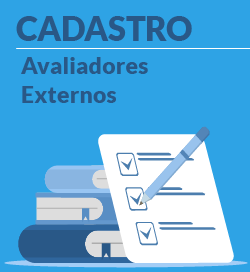GAMIFICATION IN HEALTH: MEMORY GAME FOR PROMOTING RATIONAL USE OF MEDICATIONS AND CHRONIC DISEASE CARE
Resumo
Background: The rational use of medications (RUM) is a key component in ensuring comprehensive care for individuals with chronic diseases within the framework of the Unified Health System (SUS). However, its implementation poses challenges for both users and healthcare professionals due to factors such as poor treatment adherence and lack of knowledge about medications (Silva et al., 2023). In this context, active teaching-learning methodologies, such as the use of games focused on learning or serious games as educational tools for health, have been expanding (WANG et al., 2016; SHARIFZADEH et al., 2020). These strategies contribute to strengthening users' autonomy and improving medication adherence, which are essential aspects of managing chronic conditions. This study presents the development and application of an educational memory game as a health education tool, focusing on promoting the rational use of medications within SUS. Purpose: To evaluate the effectiveness and applicability of a memory game as an educational tool aimed at promoting the rational use of medications and contributing to chronic disease care, using gamification as a strategy for health education and promoting rational use of medications. Methods: This is an educational intervention study with a mixed approach, conducted with health university students (18–30 years) and extension participants over 40 years old. A memory game was developed with illustrated and self-explanatory cards about the rational use of medications and chronic disease care, attached to a wooden structure inspired by the Montessori methodology. The dynamic was individual, with a timed session (90 seconds), where the winner was the person who correctly matched the pairs in the shortest time. A questionnaire with five Likert scale items (pre- and post-test) was applied to assess applicability, clarity, time, engagement, and usefulness. The data were analyzed using descriptive and comparative statistics (paired t-test or Wilcoxon, p<0.05). The study was approved by the Ethics Committee (CAAE: 56068321.6.0000.8093). Results: Usability tests showed that the game was well-received and performed satisfactorily, being described by participants as fun, easy to understand, and effective for learning about health care. The users, consisting of undergraduate students and elderly individuals, highlighted the ease of gameplay and the clarity of the information presented. The application of Smile Metrics indicated adequate levels of usability and satisfaction, reinforcing the potential of the game as an educational tool. A suggestion for improvement was to use it in the classroom as a complementary teaching strategy. Conclusion: The use of gamification through the memory game proved to be an effective strategy for promoting learning and the rational use of medications. Implications: The results highlight the importance of incorporating active methodologies into learning activities, especially for undergraduate students. These methodologies favor not only learning but also content retention, promoting more effective fixation. Additionally, when applied in a playful manner, they complement the knowledge already acquired in the classroom, making the educational process more dynamic and meaningful.
Downloads
Publicado
Edição
Seção
Licença
Copyright (c) 2025 Revista Diálogos em Gerontologia

Este trabalho está licenciado sob uma licença Creative Commons Attribution-NonCommercial 4.0 International License.
A Revista oferece acesso livre e imediato ao seu conteúdo, em consonância com o princípio de que tornar o conhecimento científico amplamente disponível contribui para a democratização do saber. Os(as) autores(as), ao submeterem seus trabalhos, declaram-se detentores(as) dos direitos autorais e autorizam seu uso livre, desde que sem fins comerciais, com obrigatoriedade de atribuição de crédito apropriado à autoria original. Os conteúdos podem ser lidos, baixados, copiados, distribuídos e impressos, conforme os termos da licença Creative Commons Atribuição-NãoComercial 4.0 Internacional (CC BY-NC 4.0).




